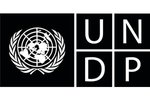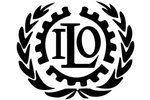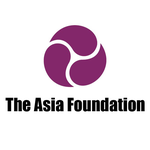A missed opportunity: DFAT’s new policy fails to prioritise digital development
DFAT's new policy fails to highlight how digital tools and systems have revolutionised how people communicate, work, learn, and access services.
The recently released International Development Policy states that Australia is committed to supporting the development of "effective, accountable states that drive their own development" and enhance “resilience to external pressures and shocks”.
However, how DFAT intends to achieve these ambitious goals isn’t entirely clear. This lack of clarity may be a result of failing to highlight the single aspect of the modern world that has revolutionised how we communicate, work, learn, and access services.
Strategic, systematic, interoperable and secure digital systems and tools have been the greatest driver for change in every sector in Australia over the past 30 years. More recently, their importance was demonstrated through the rapid uptake and evolution of digital systems and processes during the COVID 19 pandemic.
The failure to focus on the importance of digitally-enabled development is a missed opportunity to highlight and offer Australia’s experience and expertise in this space. Supporting partner States to become “effective” and “accountable” (p.7 Australian International Development Policy) is inextricably tied to supporting them in the complex process of digital transformation.
Why highlight digital?
Digitisation is nothing new in many corners of the world, yet paper-based systems are still prevalent in all levels of administration and service delivery in the global South.
These manual systems are often inefficient, unreliable and unable to be scaled. They are also vulnerable to delays, errors, and fraud which deprive vulnerable communities of a wide range of services, opportunities and informed decision making at all levels.
Resource-rich societies across the globe now benefit from robust systems that facilitate its key services, that can collect, manage and analyse vast volumes of data, enabling data-informed decision making for exponential increases in efficiency and output.
In almost every sector, strategic and well executed digital transformation offers the biggest ‘bang for your buck’ in terms of potential impact, scalable skills development, and the establishment of transparent, effective, accountable states.
Whether used for collecting and analysing high quality data to assist in decision making, allowing people to access government services, or at individual level such as transferring digital health records to a new provider, there is no tool, methodology or skill that is more timely and relevant to highlight than digital.
Building on good works
Australia's efforts to support regional partners through the Submarine Cable is admirable and necessary. However, reliable access to internet connectivity is only the first step of the digital journey for our neighbours across the Indo-Pacfic.
With digital infrastructure in place, the focus must move to supporting our neighbours to maximise the benefits of the digital world by supporting inclusive digital transformation.
This includes a wide range of initiatives including implementing clear policies on privacy, security and interoperability, developing digital skills equitably across the population, building cybersecurity awareness, and promoting user-centric and inclusive design.
It’s about more than technology
Digital transformation is inherently a collaborative experience with success dependent on context specific solutions, buy-in, and the right skills to manage, expand and maintain all touchpoints.
Australia’s experience in digitising service delivery across government and commercial sectors is invaluable to these countries working through the complexities of transitioning to mainstream digital management. This work requires close, respectful partnerships and has the potential to leverage and enhance bilateral relationships.
Australia has the ability to support our partner countries in a wide range of digital initiatives, such as:
- Supporting healthy competition across providers to drive cheaper access to internet
- Supporting the development of digital policies and recommending regulations that protect the end user
- Supporting digital capability building and embedding skills, processes and adoption in relevant institutions
- Investing in digital literacy at all levels
- Supporting program designs to include digital to ensure scale and ongoing sustainability are paramount
- Managing risks around data security and other eventualities
- Enabling the Asia Pacific region to access opportunities from greater involvement in the global economy, and empowering individuals - especially young people - to embrace creativity to solve their own challenges.
The timing is ripe
The Indo-Pacific region is in the midst of a rapid digital transformation. The COVID-19 pandemic has led to increased access to and acceptance of technology in all facets of life globally and this, combined with the continuing high adoption of smartphones (91% of Pacific Islanders are expected to be using smartphones by 2030), suggest that the time to make large-scale, systemic changes is now.
Australia has the experience, skills and relationships to support neighbouring countries to efficiently and effectively revolutionise government service delivery and support an evolution of the relationship between governments and its citizens, including marginalised groups. In order to do so, we need to recognise the opportunity, formalise the intent, and begin meaningful dialogue with those we aim to uplift.














